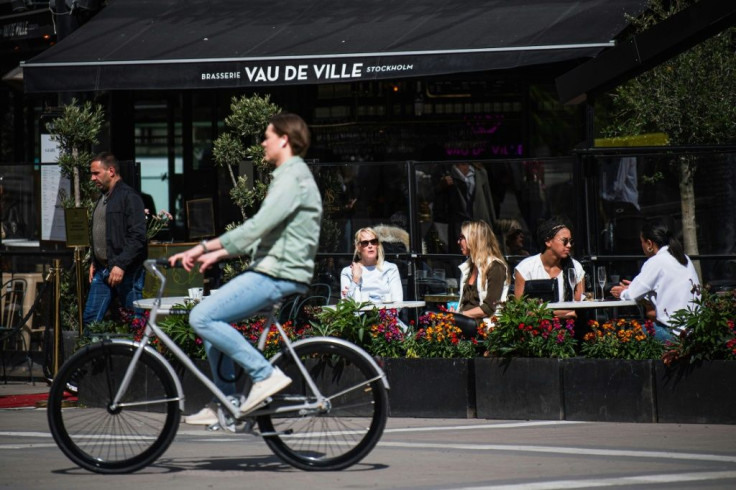Why Sweden Is Doing Better With Coronavirus Pandemic Than Other Countries, Sustainability vs. Eradication
KEY POINTS
- Sweden's chief epidemiologist says the country looks at coronavirus as a long-term problem, not something that can be wiped out
- Caseloads are rising eleswhere in Europe, but not in Sweden
- The Swedish economy took less of a hit than other European countries and the U.S.
As the U.S. death toll from COVID-19 approached 200,000 Tuesday and the nation faced a possible so-called twindemic of flu combined with coronavirus as winter approached, taking a second look at Sweden might provide some insight.
Sweden has among the lowest coronavirus case counts in the developed world despite, having bucked the general trend among governments to order widespread lockdowns that pushed the world economy into recession. Instead, Sweden closed schools for those older than 16, told everybody to practice good hygiene, limited gatherings to no more than 50 people, and instructed those older than 70 to self-isolate. People also were told to work from home if possible.
Sweden recorded is 26.1 cases per 100,000 population, the European Centre for Disease Prevention and Control reported Tuesday. That compares to 310.9 per 100,000 in Spain, 192.6 in France and 72.8 in the United Kingdom. The U.S. case count is 2,051 per 100,000 population, the Centers for Disease Control and Prevention reported late Monday.
Sweden’s death rate is running about 7% compared with 3% in the U.S., which has recorded more deaths than any other country at 199,911 as of Tuesday morning. Worldwide, 965,642 people have died from COVID-19.
Sweden’s economy took less of a hit than other countries, contracting 8.6% in the second quarter, compared to 11.7% for the European Union overall and 42.1% for the United States.
Unlike other countries, Sweden left its pandemic strategy up to public health officials rather than politicians.
Anders Tignell, Sweden’s top epidemiologist, told the Financial Times in a recent interview, he was going for sustainability rather than trying to eradicate the virus. He said Swedes realized dealing with the pandemic “was not going to be easy.” Rather, he said, he saw the disease as something “we’re going to have to handle for a long time … and we need to build up systems for doing that.”
Coronavirus cases are on the rise again elsewhere in Europe, prompting governments to consider reimposing restrictions. But Sweden’s caseload continues falling, with Tignell predicting “a low level spread.”
“What it will be in other countries, I think that is going to be more critical. They are likely to be more vulnerable to these kind[s] of spikes. Those kind[s] of things will most likely be bigger when you don’t have a level of immunity that can sort of put the brake on it,” he said, likening national lockdowns to using a “hammer to kill a fly.”
He said the Swedish approach can work for years.
“You can’t open and close schools. That is going to be a disaster. And you probably can’t open and close restaurants and stuff like that either too many times. Once or twice, yes, but then people will get very tired and businesses will probably suffer more than if you close them down completely,” he said.

© Copyright IBTimes 2025. All rights reserved.






















